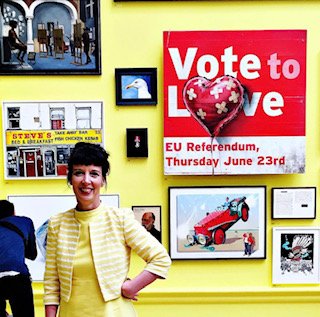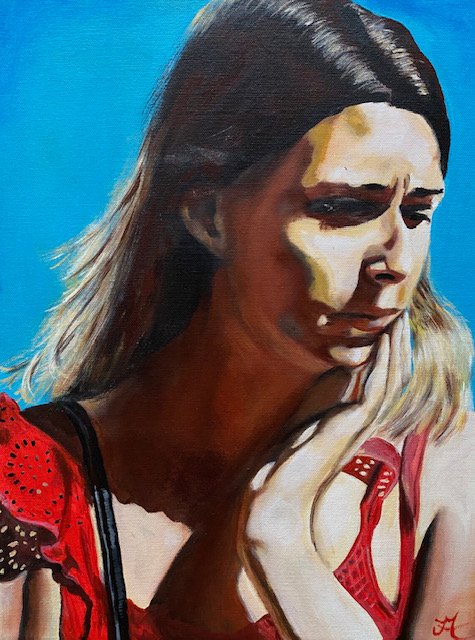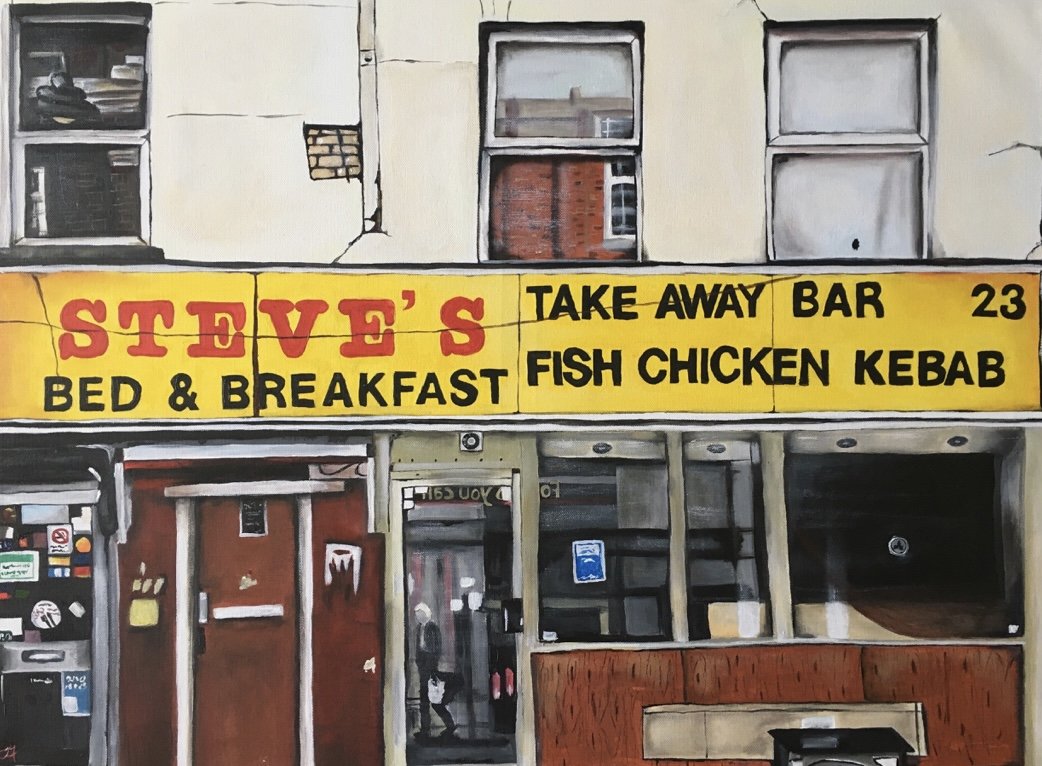ARTIST INTERVIEW: Julia Abele
Tell me about yourself, what inspired you to become an artist?
I have always been looking for a way of expression and tried many things including; dancing, singing and writing. When I was just giving up writing a novel that just did not turn out the way I wanted, I visited two exhibitions of figurative painting in 2006; one in Munich and the BP Portrait award in London, which inspired me greatly since modern art meant mostly abstract art to me, which didn't interest me back then. From that point in time, I was aiming to paint figuratively. I had a great art teacher at school and was always doing well, but I had never tried out big canvases and acrylic or oil paint, so that was new for me and I started the process of finding my style and medium.
You create a variety of paintings, what is your favourite subject to paint and why?
I cannot limit myself with my subjects as they are as eclectic as my taste is, but I find I always come back to still lifes as they best capture the transience of life and are relaxing for me to paint.
A still life with Mackerel
How have your surroundings influenced your artwork?
I keep saying that my paintings are my diary, so my surroundings feature a lot in my paintings. I paint ordinary things from my kitchen shelf as well as favourite places in my hometown or other place where I lived or went on a memorable holiday.
Tell me about your painting process from start to finish of one of your works
I always keep a long list of subjects that I want to paint eventually. It never empties. Some subjects get pushed back and others come forward. I have a pop-up studio in my living room, so I live all week with my unfinished pieces. When I paint on a large canvas, I usually start with prepping the canvas. In most cases I like to paint on an orange or red background. That gives all the paintings a nice depth to begin with and avoids leaving white spots peeping through when you paint more expressionistic and quicker. Then, I roughly sketch the subject with pencil or a thin brush onto the canvas. And then I usually start with the bits that look like the most fun. Not necessarily from background to foreground as it is taught, and then I work myself through all the details. I love blending in light and shadow with a soft brush. That is not very academic, but I do not care. Since I can only work one half of the week, the other half is spent looking at the unfinished piece in my living room. This way, I have a clear idea about what needs to be done in the next step.
What inspires you to create art? How has art helped you?
Other art helps me lot to create my own. I am addicted to visiting exhibitions as often as I can and as much as too much information stresses me out sometimes, I can easily take a lot of visual information at once. I am lucky to live close to big cities like Frankfurt, Stuttgart and Basel, so I have access to good exhibitions all the time and I always revisit some old masters in the museums close to me. I am also inspired by other visual experiences like photography and movies. I always ‘listen’ to movies (and not music) while I am painting. It is a funny habit I have.
August Heat
Out of all your work, which piece are you most proud of?
In 2018, a painting of mine of a closed down London B&B was selected for Grayson Perry's main room in the Royal Academy summer exhibition. My painting was hanging next to a Banksy and thus featured in many pictures on Instagram and the New York times etc. Those were the happiest days and weeks in my artist's life so far.
Steve’s B&B
Who is your favourite artist? If they were sat next to you right now, what would you ask them?
As with many things in life (painters, movies, musicians), I cannot limit myself to only one or even a top ten. If I had to name a handful that would be Uccello, Velasquez, Frans Hals, Watteau, Angelika Kaufmann, Monet, Picasso, Beckmann and Gabriele Münter. I would probably just want to chat with them about life rather than asking for painting advice. What I really would have liked to have done, is to take a sneak peek over Monet’s shoulder while he was painting one of his late paintings that magically get more realistic the farer away you go. I have no idea how he created that effect standing in front of the easel. As a close-up, those late paintings look like utter chaos.
Why do you think art is important in society?
For me as a painter, art is both an escape from daily life as well as a means to find answers for its complexities by trying to visualise ideas and blur the edges (and sometimes make the edges more visible too if that makes sense). For me as a consumer of art, I get to read a somewhat new translation of life, ideally one that I had not heard before and I hope that works the same way for everyone. I believe that art really has something in store for everybody, even though our tastes are totally different. Even if there is only one piece of art in the whole museum that inspires someone or gives someone a new idea, it was worth the trip.








